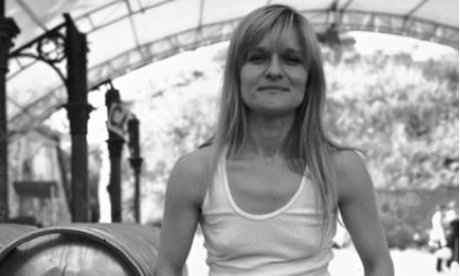
Fatherland, a graphic memoir from the same school as Marjane Satrapi’s Persepolis, is a heartfelt and extremely absorbing examination of exile, reconciliation and destructive politics in a far-off time and place: in this case, Tito’s Yugoslavia. But the story begins in present-day Canada, where the author is enduring another wearying visit from her mother, a woman who is incapable of leaving her apartment building until she has heard the sound of the key turning safely in the door behind her. This, it seems, is a paranoid legacy of the days, 35 years earlier, when she would pile furniture in front of her children’s windows, the better to keep them safe as they slept.
The rest is told in flashback. In 1975, Nina Bunjevac’s mother fled her adopted home of Canada with two of her three children, and returned to Zemun in Yugoslavia, increasingly terrified of the activities of her husband, Peter, a Serbian nationalist so fanatical he was prepared to bomb the homes of Tito sympathisers and Yugoslav missions even in Canada and the US. Bunjevac’s memoir explores her mother’s desperation at this time – Peter’s control over her is such that she has to leave her son behind in Toronto – but her main interest is in tracing the origins of her father’s extremism, and the fault lines it created in her maternal Croatian family, whose own politics were so radically different.
The horror begins in 1941, when the Axis invades Yugoslavia. As a member of Croatia’s Serbian minority, Peter’s father, Djuro, is deported to Jasenovac, a concentration camp established by the Nazi-backed government, and burned in the ovens. When the country is liberated four years later, swastikas are replaced with red stars, but little else seems to have changed. The young Peter, moreover, has been damaged by all the violence he has seen, and is now sadistic and out of control. Shipped by his family to military school in Split, he becomes a dissident, the communist regime eventually finding him guilty of espionage. After serving three years in prison, he then leaves for Manitoba, and a new life. Bunjevac’s mother becomes his pen pal – he is lonely, and has placed an ad in a Yugoslavian newspaper – and arrives in Canada on her 17th birthday, believing herself to be in love. Shortly after this, they marry. All should be well, and at first they are happy. But Peter, unable to forget his politics, joins a group of local Serbian nationalists. Slowly, carefully, we track back to where the book started.
Bunjevac handles time brilliantly, and is marvellously succinct when it comes to historical facts, unpicking a complicated situation for the reader without ever bogging him down. But it’s her drawings that really lift Fatherland up. She works in monochrome, and uses cross-hatching and pointillist techniques, both of which give her strips the feeling of newsprint. This is history, then, but it’s also as vividly immediate as any headline. At a time when European nationalism is again terrifyingly on the march, no wonder it makes for such engrossing and salutary reading.
Fatherland is published by Jonathan Cape (£16.99). Click here to buy it for £13.59 with free UK p&p

